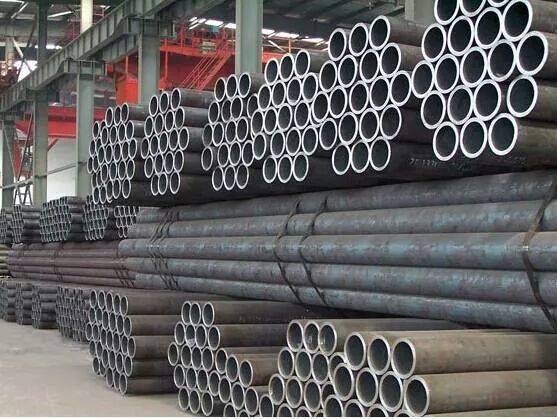
Alloy steel seamless pipes are widely used in various industries due to their strength, durability, and resistance to corrosion. These pipes are made from a combination of iron and other elements, such as chromium, nickel, and molybdenum, which give them unique properties.
In this article, we will explore the six essential types of alloy steel seamless pipes and their applications.
What are alloy steel seamless pipes?
Alloy steel seamless pipes are hollow tubes made from alloy steel, which is a type of steel that contains additional elements to enhance its properties. Unlike welded pipes, seamless pipes are formed from a single piece of metal, without any joints or welds.
This makes them stronger and more resistant to leaks and failures. Alloy steel is a mixture of iron and carbon, with the addition of other elements such as chromium, nickel, and molybdenum. These additional elements give the steel unique properties, such as increased strength, corrosion resistance, and heat resistance.
The alloy steel seamless pipe market
The alloy steel seamless pipe market is experiencing significant growth due to the increasing demand for high-quality pipes in various industries. The market is projected to reach a value of USD 58.5 billion by 2031, growing at a compound annual growth rate (CAGR) of 6.3% from 2022 to 2031.
The market is driven by the growing need for pipes in the oil and gas, construction, and automotive industries. The Asia-Pacific region is expected to dominate the market, with countries like China and India being major contributors to the growth.
6 essential types of alloy steel seamless pipes
Alloy steel seamless pipes are available in various grades, each with its unique properties and applications. Here are six essential types of alloy steel seamless pipes:
ASTM A335
ASTM A335 is a specification for seamless alloy steel pipes that are intended for high-temperature service. These pipes are made from chromium-molybdenum alloy steel and are known for their excellent weldability and resistance to oxidation and scaling.
ASTM A335 pipes are commonly used in the petrochemical, oil and gas, and power generation industries. They are suitable for applications where the temperature exceeds 500°C (932°F) and where resistance to heat and corrosion is required.
ASTM A519
ASTM A519 is a specification for seamless carbon and alloy steel mechanical tubing. These pipes are used in a variety of industries, including automotive, construction, and manufacturing. ASTM A519 pipes are known for their high strength and resistance to wear and tear.
They are commonly used for applications such as structural support, machinery components, and hydraulic cylinders. ASTM A519 pipes are available in various grades and sizes, making them suitable for a wide range of applications.
ASTM A106
ASTM A106 is a specification for seamless carbon steel pipes that are intended for high-temperature and high-pressure service. These pipes are known for their excellent strength and durability, making them suitable for applications in the oil and gas, petrochemical, and power generation industries.
ASTM A106 pipes are available in three grades: Grade A, Grade B, and Grade C. Each grade has its unique properties and is suitable for different applications. ASTM A106 pipes are commonly used for transporting fluids and gases in high-temperature and high-pressure environments.
ASTM A53
ASTM A53 is a specification for welded and seamless carbon steel pipes that are intended for mechanical and pressure applications. These pipes are known for their high strength and resistance to corrosion, making them suitable for applications in the construction, manufacturing, and transportation industries.
ASTM A53 pipes are available in three grades: Grade A, Grade B, and Grade C. Each grade has its unique properties and is suitable for different applications. ASTM A53 pipes are commonly used for structural support, water and gas transmission, and machinery components.
ASTM A500
ASTM A500 is a specification for cold-formed welded and seamless carbon steel structural tubing. These pipes are known for their high strength and resistance to corrosion, making them suitable for applications in the construction and manufacturing industries.
ASTM A500 pipes are available in various shapes, including round, square, and rectangular. They are commonly used for structural support, building frames, and machinery components.
ASTM A252
ASTM A252 is a specification for welded and seamless steel pipes that are intended for piling and structural support applications. These pipes are known for their high strength and resistance to corrosion, making them suitable for applications in the construction and transportation industries.
ASTM A252 pipes are commonly used for foundation piles, bridge piles, and transmission line poles. They are available in three grades: Grade 1, Grade 2, and Grade 3. Each grade has its unique properties and is suitable for different applications.
Conclusion
Alloy steel seamless pipes are essential components in various industries due to their strength, durability, and resistance to corrosion. The six essential types of alloy steel seamless pipes discussed in this article, including ASTM A335, ASTM A519, ASTM A106, ASTM A53, ASTM A500, and ASTM A252, each have their unique properties and applications.





















